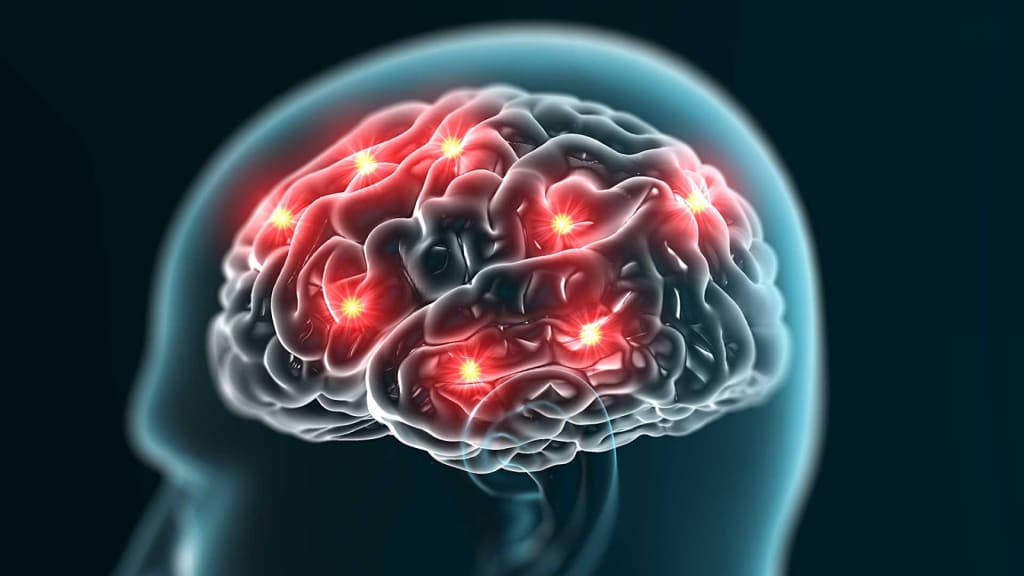
The complex organ that is the heart of our ideas, feelings, and behaviors is the human brain, a miracle of evolution. It is a work of biological art, directing a complex symphony of neurons and neurotransmitters that results in the experience known as awareness. Exploring the realm of psychological truths about the brain reveals an amazing voyage of discovery that includes emotional complexities, cognitive processes, and the enigmatic depths of human conduct. Through this investigation, we will decipher the mysterious workings of the brain, providing insight into the complex mechanisms that underpin our mental processes, the interplay between nature and nurture, and the plasticity of the mind.
(i)The Neurological Symphony: Dissecting the Fundamentals of Brain Function and Structure The brain is fundamentally a highly specialized and ordered organ, made up of many areas that work together to carry out distinct tasks. The cerebral cortex, also called the "gray matter," is the outer layer of the brain that is in charge of higher order cognitive processes like perception, thought, and decision-making. The basis of human thinking is this complex network of neurons. The limbic system is a network of neural structures located deep within the brain that are essential for our emotional experiences and reactions. An important component of this system, the amygdala, is essential for processing emotions, including fear and pleasure. Another element that is essential for memory development and spatial navigation is the hippocampus. In addition, the brainstem, which joins the brain and spinal cord, regulates vital life processes like digestion, breathing, and heart rhythm. The brain's posterior region, the cerebellum, plays a role in motor abilities, balance, and coordination. Gaining insight into the specific roles played by these areas allows us to see the complex structure that supports our everyday existence.
(ii)Neurodemers: The Mind's Chemical Messengers Neurotransmitters are the building blocks of the complex network of neurons that make up the brain's network of communication. These chemical messengers are essential for signal transmission between neurons, which promotes efficient information flow. For example, serotonin affects mood and emotional health, whereas dopamine is linked to reward and pleasure. Neurotransmitter imbalances can cause a wide range of psychiatric illnesses, and maintaining a careful balance of these chemicals is essential for mental wellness. For example, a serotonin shortage is frequently associated with disorders such as depression, highlighting the complex interplay of molecules that control our emotional moods. Research on neurotransmitters not only sheds light on mental health issues but also creates opportunities for pharmaceutical treatments meant to correct imbalances and reduce symptoms.
(iii)The Dynamic Interplay of Genetics and Environment: Nature vs. Nurture A long-standing discussion in psychology concerns the relative contributions of environment (nurture) and nature (genetics) to the development of the human mind. Developments in behavioral genetics have demonstrated that both components play a complex role in shaping our cognitive capacities, personality characteristics, and vulnerability to mental health issues. Our innate characteristics and cognitive predispositions are mostly shaped by genetic factors. On the other hand, the environment is very important in controlling gene expression and forming the brain pathways that govern human behavior. Understanding this complex interaction is essential to understanding the wide range of individual personalities and behaviors. Nature and nurture interact in a dynamic dance.
(iv) The Brain's Plasticity: Its Ability to Adjust and Rewire Throughout Life In contrast to previous theories that the structure and function of the brain do not change with age, modern neuroscience has shown the amazing phenomenon known as neuroplasticity. The brain can remodel itself in response to experience, learning, and injury because of its fundamental property. Neuroplasticity is demonstrated by a number of processes, including the rewiring of neuronal circuits during the acquisition of new skills and the restoration of function following brain traumas. The brain's plasticity creates new opportunities for therapeutic and rehabilitative approaches. Treating ailments ranging from stroke-induced deficits to neurodevelopmental abnormalities may be possible by utilizing neuroplasticity.
(v)The Cognitive Symphony: An Examination of Intelligence, Memory, and Learning For many years, psychologists and neuroscientists have been fascinated by the essential aspects of cognitive function that include memory, learning, and intelligence. The concept of memory is complex and includes short- and long-term memory as well as the complex interactions that occur between them. Nestled in the limbic system of the brain, the hippocampus is essential to the consolidation of memories. The dynamic process of learning, which is the foundation for gaining knowledge and abilities, involves modifications to brain connectivity as well as the reinforcement of synaptic connections. Understanding learning mechanisms can help improve instructional strategies and maximize cognitive function. As the highest of all cognitive capacities, intelligence is a complex characteristic shaped by both hereditary and environmental circumstances. Research on the neurological underpinnings of intelligence is still being conducted in an effort to better understand the interrelated networks that support reasoning, adaptive behavior, and problem-solving. We have only just begun to delve into the huge field of psychological facts about the brain.





Comments
There are no comments for this story
Be the first to respond and start the conversation.